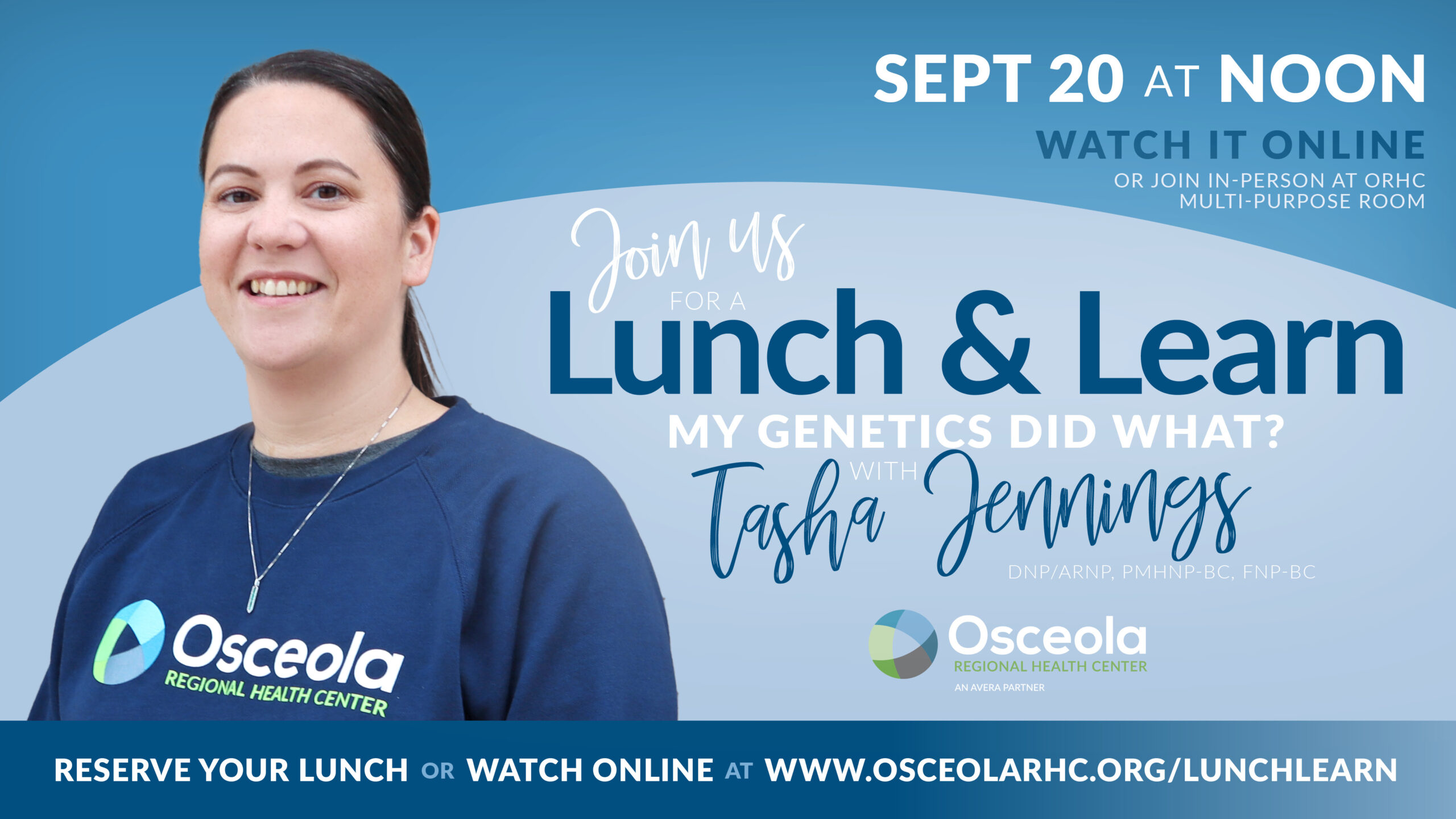Lunch & Learn
September 20
at noon
Watch the presentation on Facebook Live.
My genetics did what?
By Tasha Jennings, Behavioral Health Nurse Practitioner, DNP/ARNP, PMHNP-BC, FNP-BC
This September, we are reminded it is Suicide Prevention Awareness Month. Suicide is a devastating end to mental illness. It doesn’t have to be that way. We all have the power to help affect a positive outcome for someone struggling, but there are many factors we need to understand. For those of you who are lucky enough to have never experienced mental illness, it can be hard to understand what would bring a person to suicide. As with everything, suicide is multifactorial because a person’s mental health is influenced by many things, two of which being their environment and their genetics.
Our environment shapes who we are, whether it positive or negative. A child coming from a home that had stable food, safety, warmth and security is set up to have positive outcomes. A child coming from a home that is unstable (parents in and out, foster care, addiction, divorce) and where security, food and safety was inconsistent is set up to have negative outcomes. We naturally develop learned behaviors that are strongly influenced by our environment. These learned behaviors set us up to respond to various stressors in different ways, this is a constantly evolving feature of our development. Does this mean a person whose environment poorly set them up will have mental health struggles? Not necessarily, because our genes also influence our mental health.
Our genetics are our genetics, we don’t get a choice with them. Our genetics, or genes, that we inherit from our parents are our body’s instructions for how we will develop. These genes influence our appearance as well as body functions, such as metabolism. Food is not the only thing we metabolize; we also metabolize medications. This is why some medications don’t work for one person, but may work for another. This is also why a person may have significant side effects while others don’t.
No two people are the same. We all experience emotions, but we experience them differently. One person’s happiness could be one person’s nightmare. It’s why when two people experience the same trauma, each person is affected differently. Each person’s mental health plan of care is and should be specifically tailored. Some people benefit from a wide array of therapies, medication and mental health maintenance practices while others just need an objective ear once in a while.
Throughout this month, we encourage you all to check-in on your own mental health needs. Take some time to reflect on the things that are happening around you. Pay attention to how you feel, good and bad. Make sure to take care of yourself even if its sitting in your car with the music turned up, sitting out in the sun, or enjoying a meal with a loved one. These are all things that help us feel good and lessens the low mood. Taking care of our own mental health keeps us on the up side of things and keeps us in the positive more than the negative. And the more positive we are, decreases the negative impacts mental health can have on ourselves and those around us.
Join us at our next Lunch and Learn on September 20, 2024 to learn more about how genetics may affect mental health outcomes. This free event will be held at noon in the Osceola Regional Health Center Multi-purpose room. Free lunch is provided for everyone who attends in person. Please reserve your lunch at www.osceolarhc.org/lunchlearn. If you are unable to attend in person, go to the website above to watch the presentation online following the event or you can watch it live on facebook.

